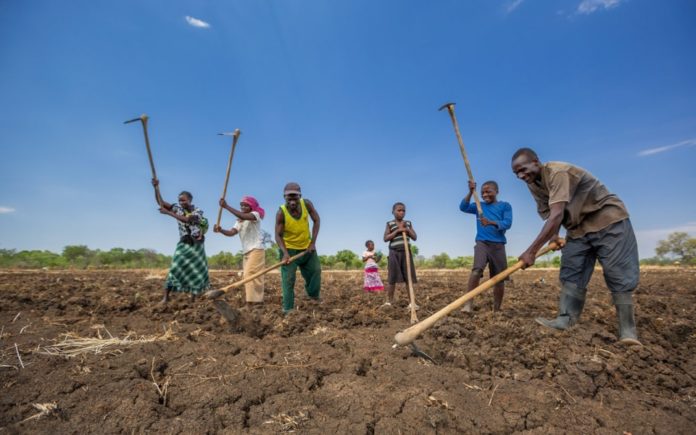
Head Image: A former hunter and his family prepare rice fields for the imminent Luangwa river basin flooding. Credit: Gael McKeon
Written by Amanda Froelich at trueactivist.com
This non-profit teaches alternative life choices to poachers, such as beekeeping, sustainable farming, and carpentry.
Did you hear the recent news concerning the African elephant? According to conservationist, this species of land animal may go extinct within the next decade if poaching isn’t drastically reduced in the near future.
But how do you deter one’s initiative to kill animals when their primary incentive is money? You, like Lao Tzu suggested, teach them to theoretically ‘fish’; In this case, help poachers find a sustainable alternative that can ensure they procure decent profits while at the same time support a greener planet.
This is the aim of the non-profit organization Community Markets for Conservation (COMACO), which is in the business of providing alternative life choices for would-be poachers. When individuals grow weary of hunting the increasingly barren brush in Africa, COMACO teaches them beekeeping, vegetable gardening, and carpentry in exchange for putting their guns to rest.
For example, Edson Zimba used to illegally hunt animals in Zambia; he was a poacher. For twenty years, he combed the bush of Zambia’s Luangwa National Park, a remote reserve known by tourists as a place to experience wildlife undisturbed.
A procurer of animal products, Zimba hunted buffalo, elephant, and hedgehog. But inevitably the sport took its toll, and he decided change was in order. About that time the non-profit asked him to learn a new trade and stop illegally hunting animals, an offer he quickly accepted.
After being taught by the organization sustainable farming techniques, Zimba now yields enough to feed his family. And what is left of his yield, he sells to COMACO for its food processing facility. This, in turn, is used to manufacture It’s Wild food products sold in markets across Zambia.

According to COMACO’s founder, Dale Lewis, in recent years eighty percent of farmers in Zambia couldn’t grow enough to make ends meet. The fallback, he says, was poaching.
And he says that “The (agricultural) technology is there, but what’s been lacking is an organization that can change a way of life… and be a solution for conservation.”
What’s more, this organization is proving to the once illegal hunters and those who witness their transformation that anyone can change.
One reformed poacher says that, before, he was a destroyer. Now, the farmer calls himself a human being.
Zimba tells Al Jazeera America that COMACO “upgraded our minds.” He says, “I’m living much better than in the past.”
What are your thoughts? Share in the comments section below.




